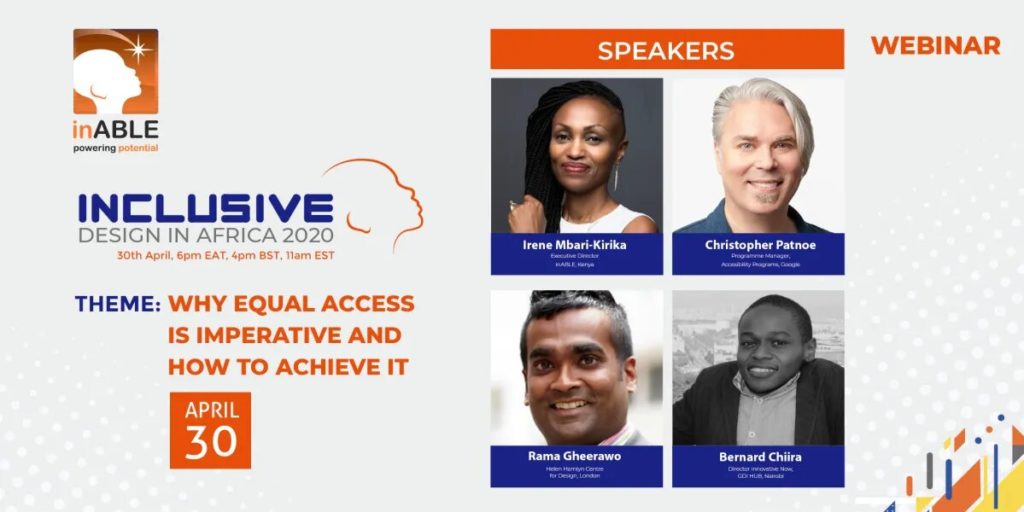Digital Accessibility in Africa: Why it matters now more than ever
inableAdmin

As the global COVID19 pandemic continues, the global population’s lives have been dramatically altered, highlighting how much we rely on digital systems and products for essential services in our daily lives.
Global measures, such as limiting inter-person contact, make it more important than ever to ensure that these services are available to all people who require them, including those with disabilities. Unfortunately, many people with disabilities in Africa are experiencing a secondary source of isolation—digital isolation.
People with disabilities may face exclusion as other members of the community go about their lives using digital apps, products, networks, and services due to their specific health condition, disability, lack of access to computer assistive technology, or digital accessibility to online information and platforms used for banking, education, and remote work.
To address Africa’s digital accessibility gap, inABLE is hosting a monthly Inclusive Design in Africa webinar series that investigates how Africa can prepare to move forward with improving digital access for all people as a priority
Each session is centered on a current topic influencing the digital inclusion landscape, and it brings together experts from various fields to discuss both top-level policy and the practicalities of life as a disabled person in the region.
Schedule
All Inclusive Design in Africa webinars are free to attend and will be hosted by Irene Mbari-Kirika, Founder & Executive Director from inABLE, delivered via Zoom. The first one was held on April, 30th 2022 and the topic was: Inclusive Design in Africa: Why Equal Access is Imperative and How to Achieve it
Speakers included:
- Bernard Chiira, Director Innovate Now, GDI HUB, Nairobi
- Christopher Patnoe, Lead Programme Manager, Accessibility Programs, Google, San Francisco
- Rama Gheerawo, Helen Hamlyn Centre for Design, London
Across Africa, people living with disabilities are experiencing a different kind of isolation: a digital isolation. As other members of the community go about their lives using digital apps, products, networks and services, they often face exclusion depending on their particular health condition or disability.
In the West, the question of accessibility is more commonly asked at the design stage. So what can be learnt, and how can we go about creating accessible African digital products for African people? The webinar sought to address this.